#Doctor who and The krikkitmen
Text
I just read Doctor Who and the Krikkitmen and it is now my favorite doctor who book.





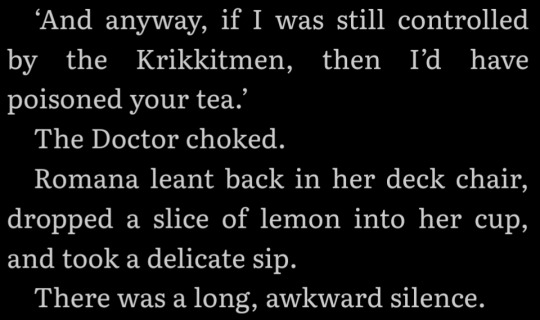
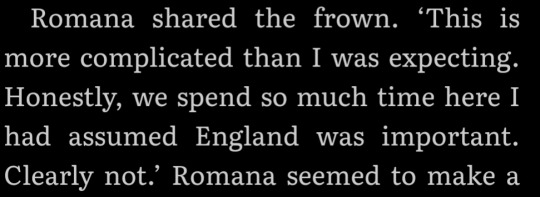
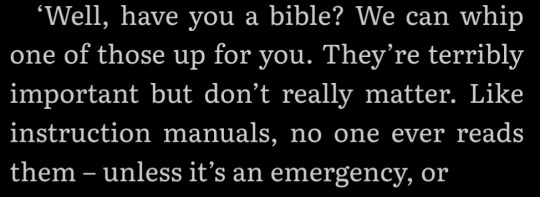



12 notes
·
View notes
Text
Round 5, Match 1
In Which the Plot, Behaving in Much the Manner Of a Soup to which Corn Starch Has been Added, Begins, at Last, to Thicken
(The Phoenix Guards, Steven Brust)
Important and Exciting Galactic History. Do Not Skip.
(Doctor Who and the Krikkitmen, James Goss)
32 notes
·
View notes
Text
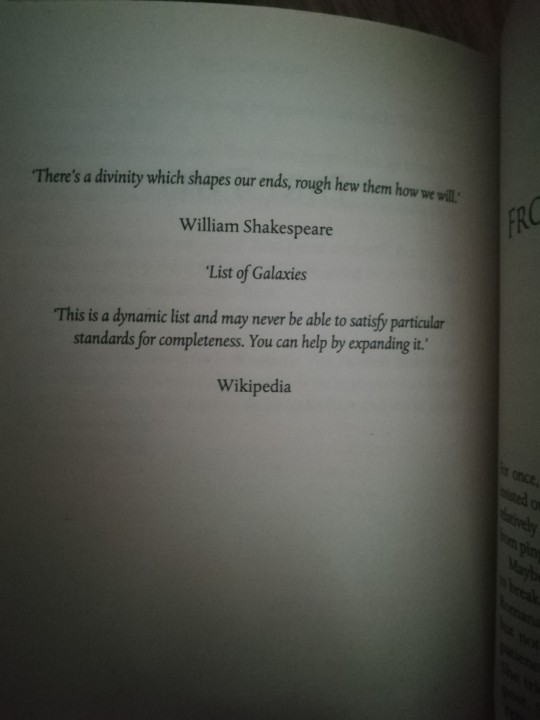
doctor who and the krikkit men by douglas adams by james goss
‘There's a divinity which shapes our ends, rough hew them how we will.’
William Shakespeare
‘List of Galaxies
This is a dynamic list and may never be able to satisfy particular standard for completeness. You can help by expanding it.’
Wikipedia
7 notes
·
View notes
Text
Decided to switch gears and finish a doctor who book and well…
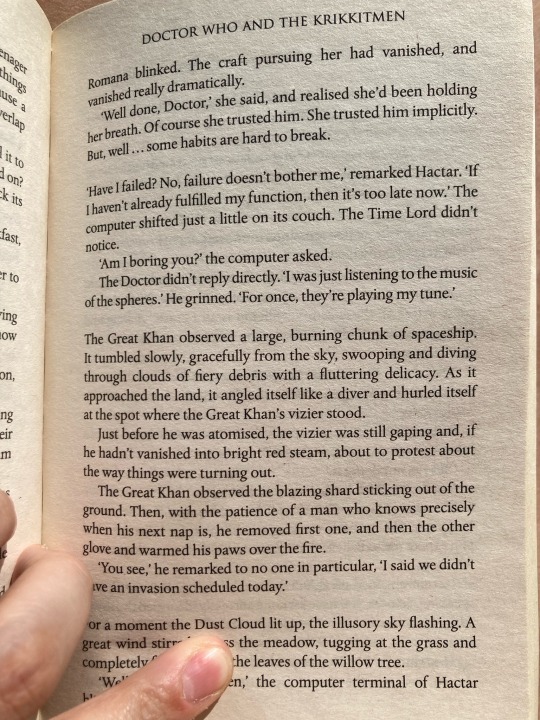
God damn it I can’t escape Star Trek no matter how hard I try.
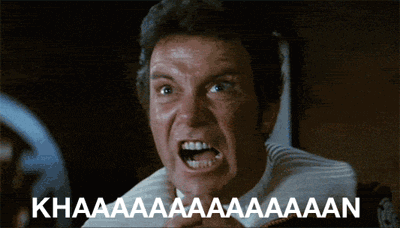
#star trek#khan noonien singh#doctor who#doctor who and the krikkitmen#Star Trek tos#the wrath of khan
7 notes
·
View notes
Text

Current reading material I carry with me.
#a.r.lopez#chicago#art#bar#bob inn#books#literature#abraham lincoln vampire hunter#blood meridian#childhood’s end#Doctor who and The krikkitmen#Stephen king’s different seasons#cormac mccarthy#seth grahame smith#arthur c clarke#douglas adams#stephen king
10 notes
·
View notes
Text
Unseen Doctor Who Pitch by Douglas Adams Uncovered
Unseen #DoctorWho Pitch by Douglas Adams Uncovered
A previously unseen idea for a Doctor Who story by Douglas Adams has been discovered among the late writer’s papers at the University of Cambridge.
Before anyone gets too excited at the news, we should stress that it’s a very rough synopsis that sets out a possible story in the sketchiest terms and, at little more than 100 words, it’s surely too short to form the basis of a future novel or…
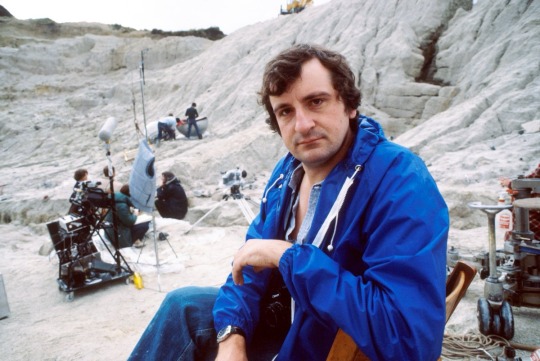
View On WordPress
#42: The Wildly Improbable Ideas of Douglas Adams#Doctor Who and The Krikkitmen#Douglas Adams#Kevin Jon Davies#Shada#St John&039;s College#The Pirate Planet
5 notes
·
View notes
Text
One of the oddest things about the Fifth Doctor is he acts like a cool left wing young university lecture (when he’s not acting like a cool little nerdy left wing student) but he walks around in the galactic equivalent of a Nazi uniform. As the clothes he chose to wear on the first of his life and Cricket whites, and as clarified in “Doctor Who and the Krikkitmen” they look almost exactly like the uniforms worn by the War Robots of Krikkit, which where created by on of the most Xenophobic races in the university.
3 notes
·
View notes
Text
Random Doctor Who Facts You Might Not Know, Part 27
The Eleventh Doctor once mentioned that he had gotten married a lot. One of those marriages might have been to Captain Jack Harkness, but he wasn’t sure since there were so many people in the room at the time.
Cricket is a leftover race memory from the gruesome Krikkit Wars. The Krikkitmen wore outfits similar to human cricket uniforms. The fact that this outfit was recognizable by many as that worn by those who wanted to wipe out the rest of the universe apparently did not stop the Fifth Doctor from wearing precisely that outfit.
The Terrible Zodin is the third most wanted criminal in the galaxy after the Master and the Rani.
Martha Jones blogged about at least a few of her TARDIS adventures on MySpace.
The Eighth Doctor continuously lied to his companion Lucie Miller about her aunt. Her aunt had long ago been replaced with a Zygon copy, and she only found out when she was comatose and overheard them talking about it while having an out of body experience.
There is an opera based on the Doctor.
The Doctor - and probably other Time Lords - have two more ribs than humans do.
Ace once managed to lift the TARDIS (albeit an alternate universe one) with a single hand while she had a broken arm.
A Gallifreyan expletive is "Otherf-" (he was cut off but you can guess the rest).
Soul catching is a Time Lord rite in which a Time Lord would transfer their mind into that of another before assimilating into the Matrix.
The Eighth Doctor also had a sexual encounter with Bernice Summerfield.
The Third Doctor recalled never being taught Venusian aikido. He theorized that he had learned it in a previous life before the Doctor existed.
It is possible to swap bodies while in Gallifreyan telepathic contact.
N-Space has been referred to as the Five Hundred and Third Universe.
Queen Elizabeth I originally had the Tenth Doctor tortured and sentenced to beheading as a spy. She had given him a stay of execution for a picnic, during which the Doctor proposed to her.
Kate once witnessed the Fourth Doctor get his scarf caught in a door. He had thought he was caught in some sort of force field.
Lolita (the Master's first TARDIS) believes that Time Lords were created by her mother (the Matrix) in order to give TARDISes a purpose.
The Fifteenth Doctor took Ruby Sunday to Manchester in the future. While he was telling her all about figures from Manchester's history, oblivious to his surroundings, Ruby noticed that they were standing on tram tracks and were about to be run over.
Ohm is an old, mad god of the Time Lords.
Before crashing into Isaac Newton's tree, the out of control TARDIS took the Fourteenth Doctor and Donna to several places, including the Western Front in 1917, 200000 BC, the Battle of Hastings in 1066, and 1970. All of this while under attack by space-faring squid creatures.
Part 1, 2, 3, 4, 5, 6, 7, 8, 9, 10, 11, 12, 13, 14, 15, 16, 17, 18, 19, 20, 21, 22, 23, 24, 25, 26, 27, 28
#doctor who#dr who#dw#classic who#new who#eighth doctor#fifth doctor#big finish#big finish doctor who#big finish audios#dw eu#doctor who eu#doctor who expanded universe#eleventh doctor#jack harkness#bernice summerfield#fifteenth doctor#fourteenth doctor#ruby sunday#donna noble#martha jones#tenth doctor#the master#the rani#third doctor#ace mcshane#lucie miller#the other#kate lethbridge stewart#fourth doctor
146 notes
·
View notes
Text
•❅───✧❅ joswriting ❅✧
: ̗̀➛ writeblr intro

Hello there! My name is Jo (shocker!), I am in my 20s and I write stories and poems in my free time. I used to have a writing account on here many moons ago and I really miss the community, friendship and support of talking with other writers about our projects, so I am trying to rebuild what I've lost.
: ̗̀➛ about me
very interaction friendly. we're all just people on here (also please tag me in games forever)
science fiction! science fiction is my everything. it's whatever. I'm normal about it
themes I write about a lot include: death anxiety, internalized bigotry, general dissatisfaction and the complex and confusing nature of existence
scifi flavour wise i like doing weird time or multiverse stuff
I'm also queer (lesbian, aromantic, whatever), if that matters. This comes up a lot in my writing be it explicit or not.
I write in German and English
: ̗̀➛ my wips/projects
⸻ On the end of everything 🌠
An "essay" on how the multiverse died, those who noticed, and how they learned to live with their fates
[reblog tag] [posts tag] [wip intro]
⸻ Poetry 🗒️
I don't post my poetry on tumblr, instead I self host it here. I love writing poems I get such a kick out of it!
My favourite poem of mine atm is this one: Lines Out Of Context
⸻ Starship Lovelace 🚀
The Starship Lovelace is an Earth vessel far from home. The human crew mysteriously disappeared decades ago - now a small group of aliens has claimed the ship.
[posts + reblog tag]
A collection of half-assed short trips, I'm trying to build my own kind of space ship show here. It mostly serves as a way for me to keep writing and get ideas out of my head without much drafting or anything. I've got a pretty good vague plot for it in my head and I'm trying to do it justice with my newer, more thought out chapters. You can see all entries: here.
The stories are hosted on the space story collection pubnix/website Cosmic.Voyage, which i just know some of you would get a kick out of.
: ̗̀➛ inspiration
on the comedy side: the two Dirk Gently books, the Hitchhikers Guide to the Galaxy, the Red Dwarf novels and Doctor Who and the Krikkitmen in particular (British people are grim, I like it)
on the more serious side: Frankenstein (my favourite book everr), many Doctor Who hiatus novels but especially Dead Romance by Lawrence Miles, the works of H.G. Wells (love that guys scifi that just completely misses the mark but was properly scientifically researched for its own time) and, to an extent, Der Tod und andere Höhepunkte meines Lebens by Sebastian Niedlich, which is a book I remember liking a lot as a young-ish teen
generally I'm a huge fan of Doctor Who and Star Trek
I sometimes reblog posts about media i really like on here too so for more check out the tag: good media
So. The first thing I’d better do is invent my audience. I'll pretend there are thousands of you out there, and I'll pretend you're all just like me; young, smart, pretty, and sarcastic (NB I’m probably being ironic here, although I’m not really sure any more). Just so we’ve got some common ground, I'll pretend you were born sometime in the late 1940s… No, sod that. I'll pretend you were born on 15 August 1948. All of you.
Well, why not? If you’re going to invent an audience, why not invent one in your own image?
-- Dead Romance, First Notebook
19 notes
·
View notes
Text
Galactic Gazetteer: Shada

Type: prison planetoid
Location: Mutter's Spiral, but outside of standard time
Affiliation: Gallifrey
Notable inmates: Salyavin, Grandfather Paradox, the Master, Scintilla, the Krikkitmen
Visited by: the Fourth, Eighth and Eleventh Doctors, Romana II
Main appearance: Shada (1980/1991/2003/2017)
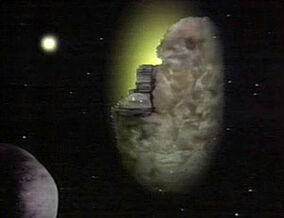
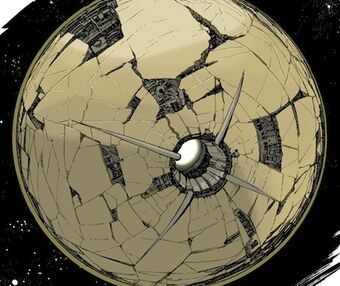

Fun fact: a Time Lord prison planet used to hold the worst criminals in space and time, who were trapped in suspended animation.
Another fun fact: visited in the unfinished serial "Shada," which has since been remade more than any other serial.
Fun fact 3: originally invented by Douglas Adams for the unfilmed DW script "Doctor Who and the Krikkitmen," which became the HHGttG novel "Life, the Universe and Everything."
#doctor who#galactic gazetteer#shada#time lords#fourth doctor#eighth doctor#eleventh doctor#hhgttg#h2g2#prison planet
40 notes
·
View notes
Note
hi hello do you know any good dr who books? ive read a decent few but im trying to look for some new ones and there are just. so. many lol. thanks :)
my favorite EDAs (so far):
Vampire Science
Alien Bodies
Seeing I
The Scarlet Empress
The Year of Intelligent Tigers
I've heard good things about Mad Dogs and Englishmen, but it's a weird one!
The Book of the Still
basically anything by Kate Orman is a hit, so i've heard, and i concur. Dying Days and The Infinity Doctors also get honorable mentions. Divided Loyalties, the Krikkitmen, and obviously Lungbarrow as well. hopefully that list will tide you over for now!
(feel free to put more reccs in the notes!!)
72 notes
·
View notes
Note
Book recommendations?
AAAH THIS IS SO LATE ( T A T )
I rlly need to check my inbox more than once a year -_-b
To answer your question, there are bunch of good books and genres, so I put together a list with a little bit of everything I love <3
Historical
The Great Gatsby
No Longer Human/A Shameful Life
1984
The Picture of Dorian Gray
Notes From the Underground
A Clockwork Orange
One Flew Over the Cuckoos Nest
All Quiet On the Western Front
Fahrenheit 451
Shakespeares works
Edgar Allan Poes works
The Iliad
The Odyssey
Magical Realism
Babel: an Arcane History
American Gods
The Night Circus (more magical than realism imo)
The Book of Dust (prequel to His Dark Materials, witch I haven’t finished but it’s good so far)
The Caraval Series
Before the Coffee Gets Cold series
Contemporary
The Secret History
One of us is lying
The Hate U Give
Concrete Rose (sequel to THUG)
Bear town
Grown Ups
Solitaire
Part of Your World
The Woman who Stole My Life
Queer stories
Loveless
Heart stopper series
Red White and Royal Blue
PROUD (short story, poetry, and art collection)
All Out: the No-Longer Secret Stories of Queer Throughout the Ages
The Song of Achilles
Authors
Angie Thomas
Phillip Pullman
Juno Dawson
Albert Camus
Junji Ito (technically a manga artist)
Fyodor Dostoyevsky
Marian Keyes
Mark Twain
Victor Hugo
Madeline Miller
Sci-fi
The Ultimate Hitchhikers Guide
Doctor Who and The Krikkitmen
Frankenstein
Strange Case of Dr. Jekyll and Mr. Hyde
Project Hail Mary
Non fiction
A Brief History of Time
The Myth of Normal
I’m Glad my Mom Died
Educated
Dot. Con (the one by John Cassidy)
… this ended up a lot longer than I planned, but I think that’s a good thing!
A lot of these books are very well known already and some of them you’ve probably read in school or something, but what can i say? They’re classics for a reason
Please check the trigger warnings, and have fun!
4 notes
·
View notes
Text
Round 4, Match 2
Everybody's Got Something to Hide Except Me and My Monkey
(The Ancestor Cell, Peter Anghelides and Stephen Cole)
Important and Exciting Galactic History. Do Not Skip.
(Doctor Who and the Krikkitmen, James Goss)
13 notes
·
View notes
Text
Novel Madness
Still reading, and apparently still blogging about it.
So this is what I read in March. Possible spoilers for the Vorkosigan Saga, and the Mercy Thompson and Peter Grant series, among others.
Jeffrey Cranor & Janina Matthewson: You Feel It Just Below The Ribs, completed March 2
So as you may recall, back in February, I had given up on Ruth Ozeki's A Tale From The Time Being, wasn't fond of Kristen Painter's Flesh And Blood, and was also not really liking the nonfiction book on Reddit I was reading.
I was somewhat tempted to just skip ahead to my reread of Memory, my favourite book in the Vorkosigan series. I mean, when I had started doing more frequent rereads, it had been after just such a string of subpar books, and I wanted to retrench and remind myself why I loved reading. Looking back in my records, I can't actually find that string of subpar books, but I can find about when I started doing the rereads--the fall of 2007, when I started doing a Wheel of Time reread, where every second book was a reread; it was the first time I reread the entire series (up to that point, which was Knife of Dreams). After that, my rereads went back to their more sporadic pace, until the spring of 2008 when I did an every-second-book reread of the Vorkosigan saga (the first of three such rereads in the next few years). And I kept doing every-second-book-a-reread for two years, at which point I slowed down to mostly every third book. By 2012 this was down to every fourth book, and there it seemed to stabilize. So it wouldn't be unprecedented for me to do my rereads more frequently, but the cycle has been stable for a while--I added in the alternation of author gender, the diversity slot, the trying-out slot…it would throw my cycle off now if I did the rereads more frequently. But don't think I wasn't tempted.
Anyway… I was looking for a male author, something that wasn't urban fantasy (because of the Kristen Painter), probably something that wasn't space opera (because Memory was still coming up)… I toyed with the idea of selecting something that might be "fun" (like John Scalzi's Agent To The Stars or the Doctor Who And The Krikkitmen book), but there were also books that I had been thinking "maybe" on for some time and hadn't yet picked up. And You Feel It Just Below The Ribs was one of them.
Many of you are likely familiar with Joseph Fink and Jeffrey Cranor's "Welcome To Night Vale" podcast, which I discovered relatively early (by current standards--maybe around the "Sandstorm" episodes?). I've see the show a couple of times when it came through (or near) Edmonton, I try to keep up on the podcast (though mostly I fail because I can't keep up with a bimonthly podcast schedule any more), and I have read all of the tie-in novels and the script books. The novels are decent, not great, but okay. And I have also tried out a lot of the other related podcasts--"Alice Isn't Dead" and "Within The Wires" are the ones I stuck with.
"Within The Wires" was always weird, and not every season was great, but it was an interesting combination of two conceits--one, that every season was done through "found audio", which included relaxation tapes with hidden messages, dictaphone recordings, answering machine messages, and museum audio guide recordings, among others. And two, that this all took place in an alternate history where, due to an early-20th-century upheaval called The Reckoning, the new regime had taken the drastic step of abolishing the family: breaking the emotional links between parent and child by altering their memories and raising the children in communal creches. (There's also a distinct shortage of male characters in the podcast, which is fine--at some point I'd even thought that men had been wiped out entirely, but there are occasional male characters mentioned now and then. And the new season features a male voice actor for the first time.) But we've never really gotten much detail about the Reckoning, because it was too far in the past, and nobody needed to talk about it much because it was just part of their common world. (Maybe in the season where we were following a woman who was part of a secret rebel group that did raise their own children, but even then we didn't get much.) So I was very interested in the novel that they came out with, in hopes that we would find out more about what the Reckoning actually was and how the change in society came about.
It's a bit of an odd novel--it has a sort of framing story of it being a found document, and has frequent footnotes. But I'm not clear why it was done like this. The document is the memoirs of a woman who was orphaned during the Reckoning--which seems here to have been a worst-case version of World War I that lasted until 1941 and did literally engulf the entire world, possibly with a worse flu pandemic as well. (This was published during Covid so that may have affected things a little.) The author, Miriam Gregory, ended up being influential to the whole post-Reckoning New Society practice of editing memories to remove parent-child bonds. She later got involved with the mysterious Institute from the first season, and there were some hints of the plot from the third (the political thriller told through dictaphone recordings). The footnotes mostly seem to be there to try to point out places where the editors of the document found stuff they were pretty sure was inaccurate. They quoted information from the official record and mentioned when there was no evidence of something existing or having happened at all. Which, okay, maybe this was people parroting the official history even with all its inaccuracies, as a method of showing how the truth had been hidden. But supposedly the publication of this document was being done by a group which was already not following the New Society party line, so why would they be so certain that this was wrong whenever it contradicted the accepted source of truth? It's not clear, and so it seems like they're just there to undermine the story whenever it gets too dramatic. It doesn't feel like an effective technique.
Overall it was a decent book, but flawed, and I felt like it could have covered more of the world than it did.
Lois McMaster Bujold: Memory, completed March 5
I have probably mentioned before that Memory is my flat-out favourite Bujold book. It's not an easy one to recommend to other people, though, because it may only work (and certainly works much better) if you've read all the previous books first. Jo Walton has talked about the "spearpoint theory", where a tiny sharp point can be made much more effective if you've had a lot of buildup to it. This book has a shaft consisting of all the Miles books and stories that came before. Obviously Mirror Dance, of course, the immediate prequel, but it has an especially poignant revisiting of "The Mountains of Mourning", as well as the reappearance of Duv Galeni from Brothers In Arms, and robust roles for Emperor Gregor Vorbarra, Delia Koudelka, Ivan Vorpatril, and Simon Illyan, who is central to the plot. It also has one of the dullest titles in the series, though it is relevant, not least because of the reference to Simon Illyan's eidetic memory chip.
The first part is the most painful, as Miles manages to lose most of what's important to himself through an attempt to keep it from slipping away. But I love almost every scene that takes place on Barrayar. It's such a treat just to see Miles coping with day-to-day life there (my favourite bit is still the convenience-store "Reddi-Meals!"), plunged back into a life he's been neglecting for years, that it doesn't even feel disappointing when it's over a third of a way into the book before the "real" plot really gets going. Because the shaft of that spear is still building up.
In later rereads, there are some bits I find fascinating. Like the worldbuilding details about the existence of Imperial Auditors, special investigators answerable only to the Emperor himself, that actually were never mentioned before in the series. But the way the native Barrayarans explain it to one Komarran feels completely organic, and they've known it all along, so surely these Auditors have been mentioned before? Nope, they're probably something that the author pulled out of her hat for this book (there were "auditors" mentioned in the framing story of Borders of Infinity, but I think they were just regular auditors, not Imperial ones). But if feels like they've always been in the background. (Maybe, if they were, they should have been mentioned in Barrayar somewhere? Well, whatever. Good enough.) Also, there was one relationship that blindsided me first time through, but now I can spot all the groundwork being laid for it all the way through. Very deft.
Steven Barnes: Zulu Heart, completed March 12
Next, according to my cycle, it was time for a book by a "diverse" male author. As I may have mentioned before, I seem to be much shorter on those than I am on female diversity, particularly on the black authors.
I first read Steven Barnes many years ago, at least in collaboration. His book with Larry Niven, Dream Park, has long been a favourite; I recall one day, after a stressful move between cities, that I spent just rereading the book from cover to cover. The sequels never hit quite the same spot, though, which may be why, although I did occasionally buy a Barnes solo book in a second-hand store, I had never actually gotten around to reading any of them. But they were there when I needed to draw from them for this slot. A couple of years ago I read his Lion's Blood, an alternate history novel about a world where African (and mostly Muslim) nations colonized the New World (which I believe they called Bilalistan), and they enslaved Europeans. (I don't recall if there was an in-universe explanation for the change in dominance--maybe the ever-popular Hyper-Virulent Black Death--or if it just turned out that way. There was something about Alexander The Great maybe going to Egypt…) One of the main characters was an Irish man named Aidan who was enslaved as a child near the beginning of the book, and separated from his sister; the other one was a black Muslim named Kai, son of a Wakil in Bilalistan. It probably covers a lot of slave-story tropes, but race-swapped, plus there's also drama an intrigue centered around Kai's family. It was an okay book, but I wasn't particularly planning on searching out the sequel; however, last summer at the When Words Collide convention in Calgary, I saw it on a table of "free to a good home" books, and decided to pick it up. And having basically exhausted pretty much all the other possibilities, I was perforce reading it next.
Once of the principles I mostly stick to with the diversity books is that I don't give up on them. (Maybe I should have done this with the Ruth Ozeki book last month, but I guess I didn't.) It's supposed to be about broadening my horizons, approaching different kinds of stories, etc. I've always been a little hit-or-miss with alternate histories; my perception, at least, is that a lot of them tend to focus on the same things--the American Civil War, the American Revolutionary War, World War II--all American stuff. This one is, at least, a little more creative, and is very black culture focused in a way that, frankly, Barnes's other books I read really weren't.
Plotwise, though, it's only okay; some threads are interesting, some I'm less interested in, and some seem to be a little rushed, as if he was trying to squeeze in plots from a third book the publisher had nixed. The back cover blurb seems to imply that the book is going to cover this world's version of the Civil War, but given that they're still colonies of overseas nations (Egypt and Abyssinia) it's really more like a Revolutionary War. And, spoilers, what there is of it is not a major part of the story. In that sense it's almost more like Diana Gabaldon's later books where the (American) Revolutionary War is going on, and it affects our characters, but it's not primarily about the war itself. And maybe this book would have benefited from being even longer to have that increased scope.
I do worry a bit about the reversed slavery idea--on the one hand, maybe it'll give some of us white people a better feeling for what the Africans suffered under slavery if we replace them with Europeans. The concepts that stuck with me were things like having white slaves given Arabic or African names rather than names from their own culture, and also all the African cultures being treated as distinct things while all the European cultures get jumbled together. But I also picture some people pointing at this and saying, "See? They'd do just the same as us if they were in charge!" Which may be true, but of course it doesn't say that, in our world, the slaves in America didn't suffer, and we're not living in that alternate world. It means that one group may not be inherently nobler than another, but that doesn't mean that they're not deserving of justice, or equity, or reparations. (I can also picture frothing white supremacists screaming that this the what the blacks want, and turning it into a story of white victimhood. Well, I guess we can't control what white supremacists are going to froth about.) It's not a bad thing, but it seems like it can be mischaracterized. (One novel I was working on, I have a setting with an area's native inhabitants being oppressed by intrusive colonials, and I was toying with the idea of having the natives be white, but I'm afraid it'd get read as anti-immigrant rather than anti-colonial, so I probably won't.)
Natalie Zina Walschots: Hench, completed March 16
After the long and somewhat topically heavy slavery book, I decided I was in the mood for something maybe a little lighter, and it was time to get back to a female author. My wife had recommended this Hench book to me, and nudged me about it a couple of times, and I decided to give it a go. I know that technically I do have my special slots for new authors (with the "try but feel free to give up if it does not spark joy" parameters), but if I never tried a new author outside of those slots, then it would take forever me to try all the ones I'm interested in, so I decided to let myself read this one.
The book is clearly set in a world with superheroes, and of course supervillains. I've read a lot of comics--mainly Marvel comics from the 60s through to the 90s (my attempt at a comprehensive read-through on Marvel Unlimited has just inched its way to the end of 1993, so I may be a little behind on the current state of the superhero genre, apart from the MCU stuff) but fewer actual prose novels. I suspect that the modern superhero novel, with its narrower focus, is more prone to examining superheroes in more depth, and frankly most of them tend to come out on the anti-superhero side of things, and at the very least turns them into more complex, flawed characters. The Annihilation Score tended to treat them as problematic; Brandon Sanderson's "Reckoners" series treats them as existential threats (admittedly, in that setting their powers literally drive them insane); and at best, they are severely flawed people who just happen to have powers, as in James Alan Gardner's "Sparks Vs. The Dark" series. Maybe it's a generational thing--in an age where the status quo is far from kind to the vast majority of those who are Millennials or younger, who are your sympathies with--heroes who fight to uphold the status quo, or the villains who subvert it? (Which is not too far off from the logic from that gets people to vote for Trump…)
Hench shows us mostly the villain side of the story, with superheroes mostly shown as overpowered thugs and walking disasters. We're mostly concerned with Supercollider, an example of the former, whose every brush with our protagonist leaves her damaged, and his longtime nemesis Leviathan, who lifts her up and makes her feel valued. I keep wanting to draw analogues with the heroes I'm familiar with--is Supercollider basically Superman? Leviathan seems more like Doctor Doom than anybody. Supercollider's partner Quantum Entanglement (a bit of an awkward name) seems more like a combination of Invisible Woman and Shadowcat than anything else. (I'm always low-key amused at superhero naming where they just silently have to avoid the names of real Marvel or DC characters, without seeming to. In my superhero stories I mostly tend to think that the real heroes are afraid of getting sued by the corporate juggernauts who own the trademarks on the fictional ones…) It got a lot darker than I was expecting, actually, but it was absorbing and I liked it a lot.
Patricia Briggs: Silver Borne, completed March 19
I had originally been thinking of something like Ann Leckie's The Raven Tower for my next book, but after Hench I wasn't feeling like it; instead I thought it might be time for another urban fantasy. I have started so many, and finished (or even caught up with) so few--the Dresden Files, for sure, and the Kelly Meding might be the only one. I find a lot of them appealing in the abstract, but it seems like they appeal to my wife more, so she's the one who reads then, gets hooked on the series, stays caught up, buys them in hardcover, etc. She has always been more of a fan of romance, and a lot of the female-authored urban fantasy seems like it's on a spectrum to paranormal romance. (The main difference, of course, is probably whether there's a single continuing protagonist, or a different romantic pairing every book.) Anyway, I'm in the middle of a lot of series, and it seems to take a lot to get me to the state where I get hooked and have to start reading them faster, so it can be years between books for me.
Patricia Briggs has, like many, split off a side series--her main series follows Mercedes "Mercy" Thompson, but there's also a "Charles & Anna" series which crosses over, and after the last Mercy Thompson book (Bone Crossed) left me a little underwhelmed, I had started those books, so the last Briggs I read was actually side series novel Cry Wolf. Apparently reading them in alternation is not a bad idea anyway, so I went back to Mercy for this one. I even remembered most of the characters, or at least was satisfied with the author's descriptions of them (a lot of minor werewolf pack members showed up, and I couldn't tell you for sure which ones we'd seen before or had character traits before this book).
The pacing was a little weird--there's basically three plot threads which show up at different times, which aren't really connected causally but do interact with each other, and the balance doesn't always work (like pack politics dominating everything else for a few chapters until we get back to our other plots), but it was better than Bone Crossed, at least. It's unfortunate, given how much urban fantasy I read, how little I enjoy the dominance politics of werewolf packs, and particularly the touchiness of Alphas. (Oh, no, we can't meet their gaze or undermine their authority or it's a challenge and they'll have to kill us. And they can't show any weakness or others will try to kill them.)
Next book in the series will be back to Charles & Anna, anyway. I am not yet really hooked on the series, but I'll keep going for now.
Lois McMaster Bujold: Komarr, completed March 22
Back to the Vorkosigans again, for Komarr. Like her other planet-named books, it takes place entirely on the planet in question (if we allow space stations in the same system to be close enough, anyway), the troubled vassal of Barrayar. Because the only current access to Barrayar comes through a wormhole in the Komarr system, and the earlier Cetagandan invasion of the planet was abetted by the Komarrans, Barrayar ended up conquering Komarr to secure its interface to the rest of the world. (I always wondered if it was only upon conquest of a second planet that Barrayar became a true empire, but I think they had emperors before that so probably not.) They've tried to be benevolent rulers since then, but we already saw in Brothers In Arms that there are those, like Ser Galen, that want to get rid of the Barrayaran yoke. And Aral Vorkosigan acquired the sobriquet of "The Butcher of Komarr" when a group of prisoners in his custody were executed--supposedly on his orders, but in fact it was an overzealous subordinate who Aral later killed.
Miles comes along to investigate a bizarre act of destruction--accident or sabotage, we don't yet know--where the "soletta array", a group of orbiting mirrors reflecting additional sunlight onto the cold, still-being-terraformed world (the world's population still lives in domed cities), has been damaged through collision with an off-course ship. He's mostly just shadowing older Lord Auditor Vorthys, the engineering professor who's analyzing the debris, and they end up staying over with Vorthys's niece Ekaterin Vorsoisson, who is our other viewpoint character in the book. Ekaterin has a highly unsympathetic husband, Tien, who has a secret shame, a hidden genetic disease called Vorzohn's Dystrophy. He also happens to be in charge of a small department of the terraforming effort.
I guess my biggest problem with this book is just that Tien and his department turn out to be directly related to the soletta disaster. I mean, think of it--the disaster happens, and an auditor is sent to investigate it. If it hadn't happened to be someone connected to Tien, the investigation might have gone nowhere, or taken a lot longer, because they wouldn't have had that extremely gratuitous link. It bugs me every time.
So the best part of the book is probably the introduction of Ekaterin, and her growth as a character through to the end of the book, where she strikes a decisive blow. And without it, we wouldn't have A Civil Campaign (or would, at least, have a much different book). But it is a dip in what would otherwise be a five-star run from Mirror Dance.
Shaun Barger: Mage Against The Machine, completed March 27
Catchy title, eh? That's probably part of why I picked it up in the first place, though I don't remember for sure. This is in my actual "trying a new author" slot, generally with permission to give up if the book doesn't grab me.
Essentially, it seems that the world ended at some point (2020?) when the machines/AIs rose up against the humans. The mages, who had been living in secret veiled communities for centuries, were hidden and thus not affected by this, though they're pretty sure that the humans were all wiped out. At least, that's what Nikolai, a young magically-talented officer (with a traumatic past) in the year 2120, has always been told.
Meanwhile, outside the veil, a young human cybernetically-enhanced woman named Jem, who remembers the machine uprising ten years earlier (she has her own tramatic past), and who mostly escaped because they were on the way to a colony on Venus at the time, is working as a courier, escorting a rare pregnant woman (unaffected by the fertility plagues the machines spread) through the fringes of Philadelphia.
The two stories go back and forth for several chapters in what seems like an attempt to sow confusion in the reader about the inconsistencies between the two versions of the timeline, which mostly led me to conclude that either these are literally parallel worlds, or that the mages are severely misinformed about the last century of history outside the veils. Or, presumably, most of them are misinformed but the ones at the top are all in on it and keeping the secret for their own reasons.
It seems like a bit of a hodgepodge. Part The Matrix, part Harry Potter (the mages have a sport named "flyball" that seems a lot of like Quidditch without broomsticks), part Brandon Sanderson/Brent Weeks (the flavour of the actual magic system), part Children of Men, part Wool (for the sheltered society ignorant of the world outside)… But I guess that means it's not too derivative, because of the variety of sources?
The biggest problem with it, really, is that the story clearly is not finished…but, in the five years since its release, no further books have come out. The author still seems to be actively posting on Instagram, and I found a Reddit post which said that as of two years ago the sequel was finished (and apparently there are supposed to be four books total), so I hazard a guess that the roadblocks are publishing-related. Like, his editor, Navah Wolfe, bought the first book for Saga Press, but moved on, so he might be editorially orphaned, leading to Saga passing on later books, so he'd have to be looking for a new publisher, or giving up and self-publishing (or just giving up). Always awkward--ask my wife who has two self-published sequels to the books that Scholastic published twenty-some years ago, because no other publisher would take them without rights to the first two. (Diana Rowland managed it somehow, but mostly it just doesn't work.) So I may hang on to this one and await further news (which presumably he'd post on Instagram or something…)
Ben Aaronovitch: Whispers Under Ground, completed March 31
Most of the urban fantasy series out there had female authors and female protagonists; I tend to call this the "post-Buffy" wave--before that, it felt like "urban fantasy" was more like Charles de Lint, with people in and around cities coming into contact with fairies and the like. Although stuff like Tanya Huff's "Blood Ties" series was also around back then, and that's clearly very close to what we call urban fantasy these days. Anyway. There are a few male authors as well, Jim Butcher the most famous, and Kevin Hearne, but they have a different flavour to them. And then there's Ben Aaronovitch, which is different again, being very British. Which is all just a way of saying that, while I normally try not to read too-similar books too close together, this doesn't really feel very much like the Patricia Briggs book I read a couple of weeks ago.
I'm a bit behind on this series--I read Midnight Riot (the North American retitled version of Rivers of London) some time ago, and Moon Over Soho more recently but still a while ago. But my wife was just reading the latest, Amongst Our Weapons, from the library, and apparently it's full of Monty Python references (in the chapter titles, if nothing else), and my eldest son was just reading Midnight Riot (apparently he'd heard that this series's magic system is vaguely similar to the system from the Ars Magica RPG we've been playing recently), so it felt like time to revisit it. My memory is of course a little fuzzy, but my overall impression is that this book is a little more police-procedural murder mystery than the previous two. Definitely there is a murder to solve, and there is a lot of interaction with other police (and an American FBI agent). Definitely a certain amount of underground (including sewers), as the title implies (so it's not just the London Underground). I enjoyed it and will have to try to revisit the series a little more frequently.
And that's it for the prose fiction books for March. For completeness I can also add in a graphic novel I squeezed in (literally just finished it before midnight on the 31st). See, one of the podcasts I've been listening to for a while is the "Endless" podcast, about the Sandman, cohosted by Lani Diane Rich and Alisa Kwitney. Kwitney, who was a former DC editor, particularly on Sandman itself, also apparently did a series for Ahoy Comics called "G.I.L.T.", which they were shilling on the podcast, so I thought I'd give it a try. I got my library to order what turned out to be a collection of the first five issues (I guess I'm not sure if there are more, but I wouldn't be surprised). "G.I.L.T." apparently stands for something like "Guild of Independent Lady Temporalists", though I'm not sure such a guild actually turned up… Anyway, two women, 70ish Hildy and 50ish Trista, get sent back in time to 1973, though Trista wasn't supposed to come along; they try to deal with their respective pasts, linked by a creepy cult-leader type that Hildy was engaged to and Trista's mother was a follower of. They're not supposed to be able to change anything, but they're also not supposed to both go back at once, so things get a little screwy. I wasn't 100% sold on it, but it was interesting.
And now I am actually reading The Raven Tower, but that'll be for next month's post.
#Lois McMaster Bujold#Vorkosigan#Ben Aaronovich#Patricia Briggs#Steven Barnes#Shaun Barger#Natalie Zina Walchots#Jeffrey Cranor#Janina Matthewson#Within The Wires#books#reading#Alisa Kwitney
4 notes
·
View notes
Text
Books I've read (or more accurately, media I've consumed that's relevant to this blog)
Doctor Who prose
Target novelisations
The Essential Terrance Dicks vol. 1 (will add individual stories when I check), The Day of the Doctor, The City of Death
Eighth Doctor Adventures
Vampire Science (well, a fan audio), Alien Bodies, Seeing I, The Scarlet Empress, Interference, The Taking of Planet 5, The Shadows of Avalon, The Banquo Legacy, The Ancestor Cell
Virgin New Adventures
Protagonist: Seventh Doctor
None, yet
Protagonist: Bernice Summerfield
Dead Romance (does not feature Bernice Summerfield), none yet
Faction Paradox
Novels
This Town Will Never Let Us Go, Of the City of the Saved
Anthologies
A Romance in Twelve Parts, The Boulevard (vol.1), More Tales of the City
Iris Wildthyme
Phoenix Court
Marked for Life, Does it Show?, Could it Be Magic?
Doctor Who audios
Eighth Doctor audios
All Charley audios, all Lucie audios, Dark Eyes, Doom Coalition, Ravenous
Faction Paradox audios
The Faction Paradox Protocols, The True History of Faction Paradox, Sabbath and the King
Additionally: Dionus's War, The Confession of Brother Signet
Non-Who media with connections (incl. authors)
Douglas Adams
Hitchhiker's Guide to the Galaxy (Life, the Universe, and Everything has Krikkitmen)
5 notes
·
View notes
Text
Cool - James Goss will be writing the Target adaptation of The Giggle.
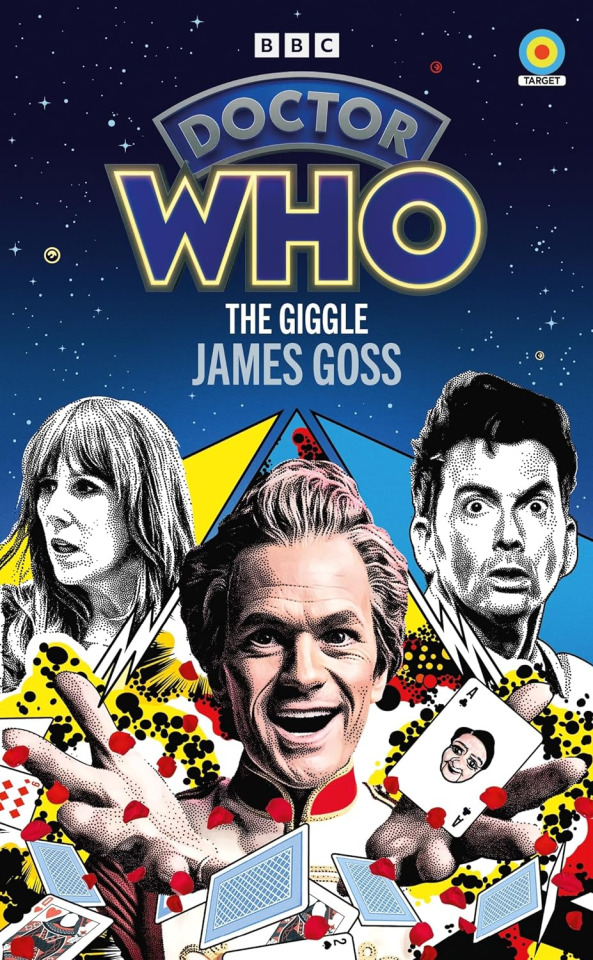
James adapted the original treatment of the Douglas Adams story Doctor Who and the Krikkitmen, which Douglas turned into Life The Universe and Everything.
The other specials will be adapted by Gary Russell
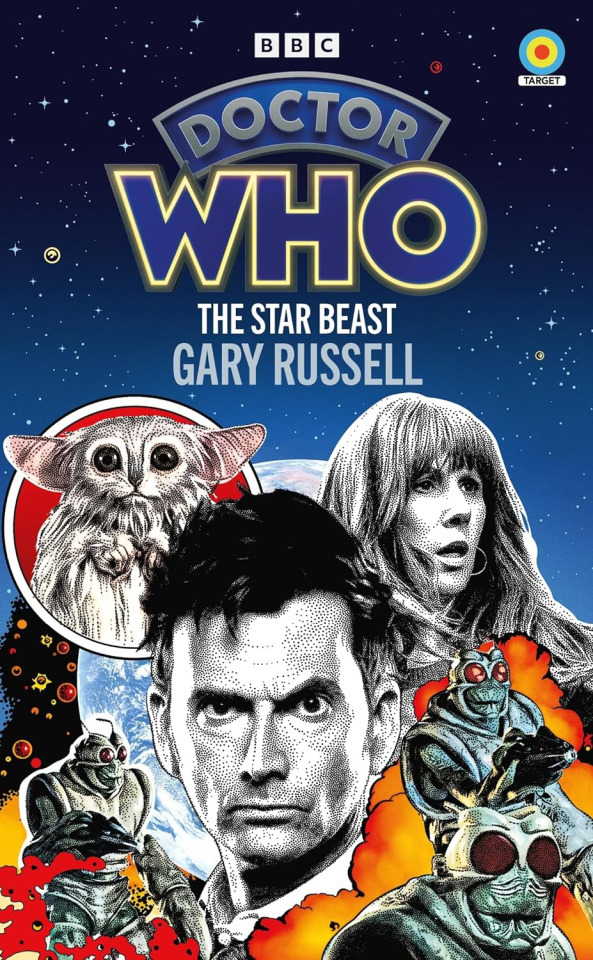
and Mark Morris
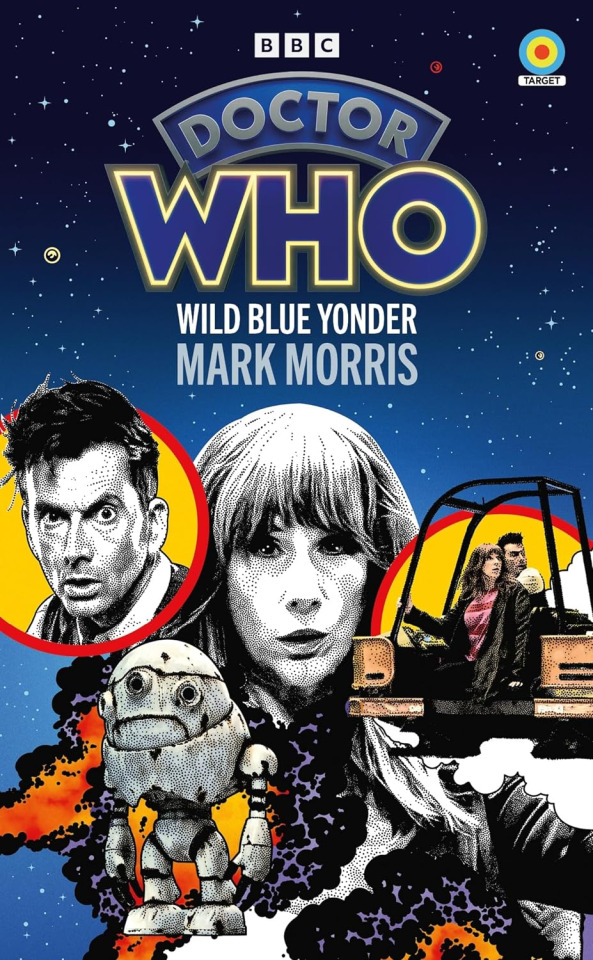
0 notes